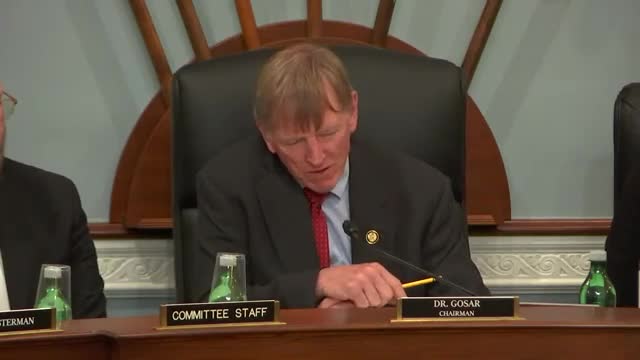Georgia Legislators Address Wildfire Management Amid 20% Increase in Fires
May 16, 2025 | Natural Resources: House Committee, Standing Committees - House & Senate, Congressional Hearings Compilation
This article was created by AI summarizing key points discussed. AI makes mistakes, so for full details and context, please refer to the video of the full meeting. Please report any errors so we can fix them. Report an error »

In a recent oversight hearing by the U.S. House Committee on Natural Resources, critical discussions emerged regarding the management of forest lands and the rising challenges of wildfires, particularly in areas like Flagstaff, Arizona, and Georgia. The meeting highlighted the urgent need for proactive land management strategies to mitigate fire risks and protect communities.
One of the most pressing issues raised was the impact of inadequate forest management on homeowners' insurance. A landowner expressed frustration over their insurance being canceled due to the Forest Service's failure to maintain surrounding properties. This situation underscores a growing concern among residents who have invested in fire-resistant measures on their own land but still face insurance challenges due to the broader state of forest health. The landowner suggested that collaboration with local forest officials and public awareness campaigns could help address these issues.
The hearing also addressed the complexities of wildfire mitigation, emphasizing that solutions must be tailored to individual properties. Experts noted that factors such as tree density, dead limbs, and overall forest health contribute to fire risks. A comprehensive approach is necessary, combining efforts from homeowners and forest management agencies to reduce hazards effectively.
In Georgia, the situation is similarly dire, with a significant increase in wildfires reported this year. Officials pointed out that a reactive approach to fire suppression has led to dangerously high fuel loads in woodlands, particularly near urban areas. This has raised alarms about the safety of communities and the need for a shift towards proactive land management strategies.
The discussions also touched on the potential of innovative building materials, such as flame-resistant basalt panels, to enhance fire safety in construction. However, integrating these materials into building codes remains a challenge that requires collaboration across various sectors.
As communities grapple with the realities of wildfire risks, the outcomes of this hearing signal a critical moment for policymakers to prioritize forest management and support residents in safeguarding their homes. The path forward will require a concerted effort to balance environmental stewardship with community safety, ensuring that both landowners and local ecosystems can thrive.
One of the most pressing issues raised was the impact of inadequate forest management on homeowners' insurance. A landowner expressed frustration over their insurance being canceled due to the Forest Service's failure to maintain surrounding properties. This situation underscores a growing concern among residents who have invested in fire-resistant measures on their own land but still face insurance challenges due to the broader state of forest health. The landowner suggested that collaboration with local forest officials and public awareness campaigns could help address these issues.
The hearing also addressed the complexities of wildfire mitigation, emphasizing that solutions must be tailored to individual properties. Experts noted that factors such as tree density, dead limbs, and overall forest health contribute to fire risks. A comprehensive approach is necessary, combining efforts from homeowners and forest management agencies to reduce hazards effectively.
In Georgia, the situation is similarly dire, with a significant increase in wildfires reported this year. Officials pointed out that a reactive approach to fire suppression has led to dangerously high fuel loads in woodlands, particularly near urban areas. This has raised alarms about the safety of communities and the need for a shift towards proactive land management strategies.
The discussions also touched on the potential of innovative building materials, such as flame-resistant basalt panels, to enhance fire safety in construction. However, integrating these materials into building codes remains a challenge that requires collaboration across various sectors.
As communities grapple with the realities of wildfire risks, the outcomes of this hearing signal a critical moment for policymakers to prioritize forest management and support residents in safeguarding their homes. The path forward will require a concerted effort to balance environmental stewardship with community safety, ensuring that both landowners and local ecosystems can thrive.
View full meeting
This article is based on a recent meeting—watch the full video and explore the complete transcript for deeper insights into the discussion.
View full meeting